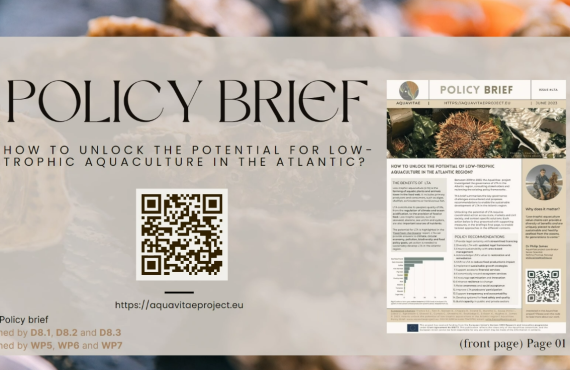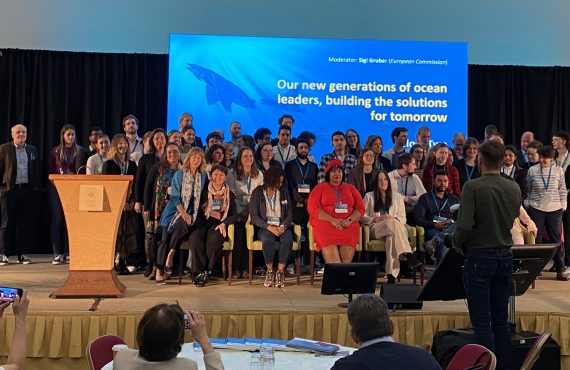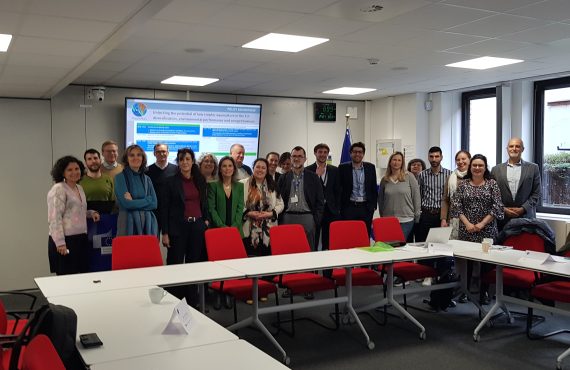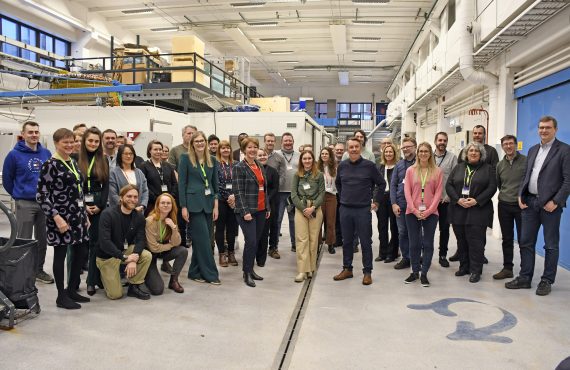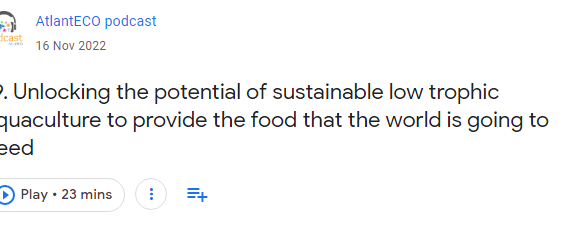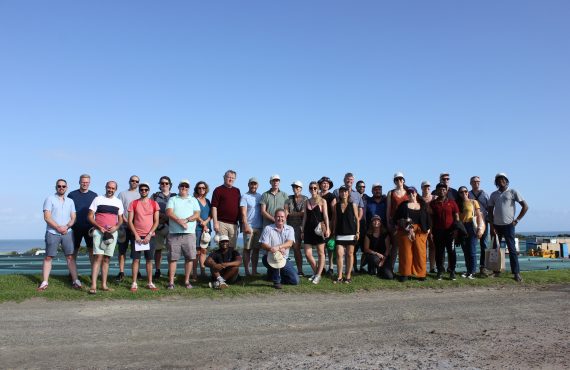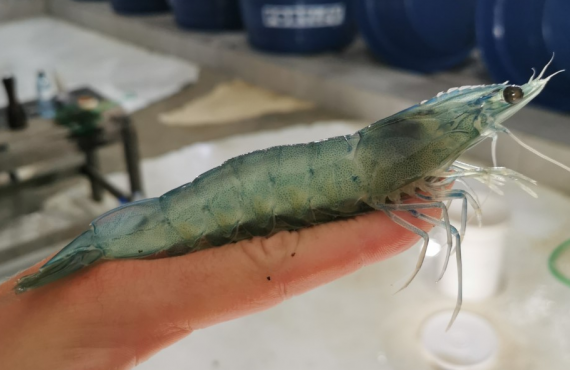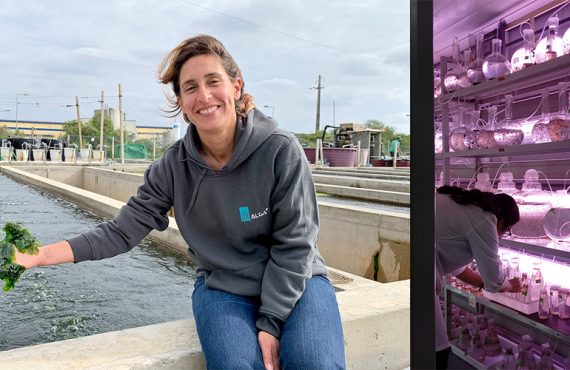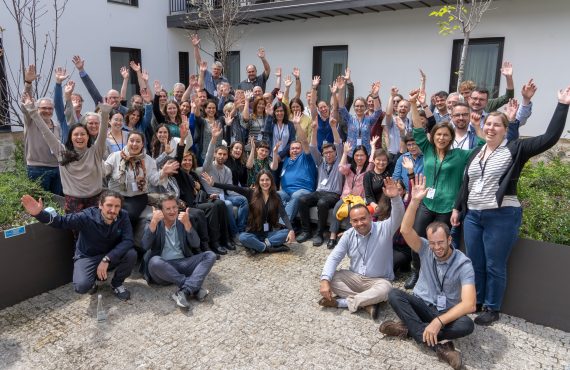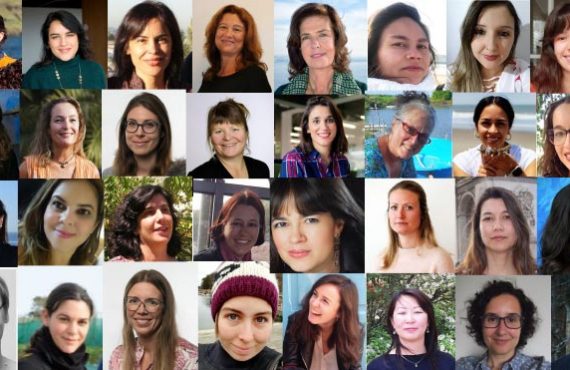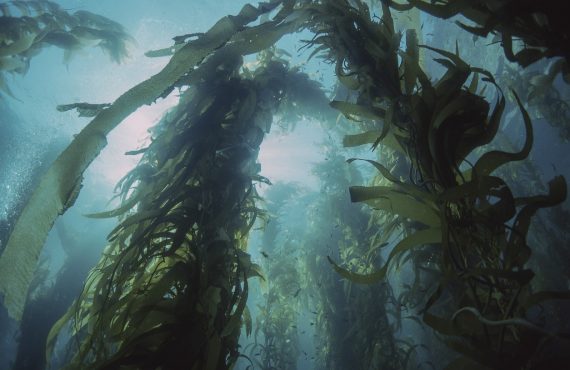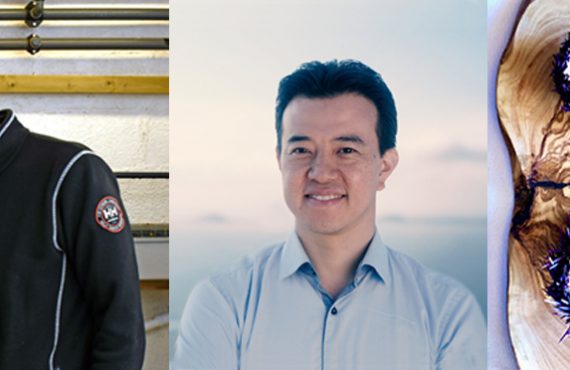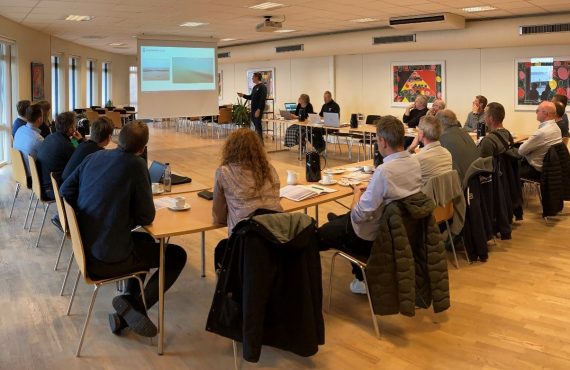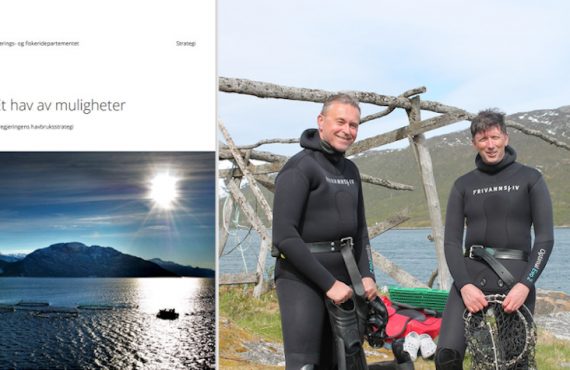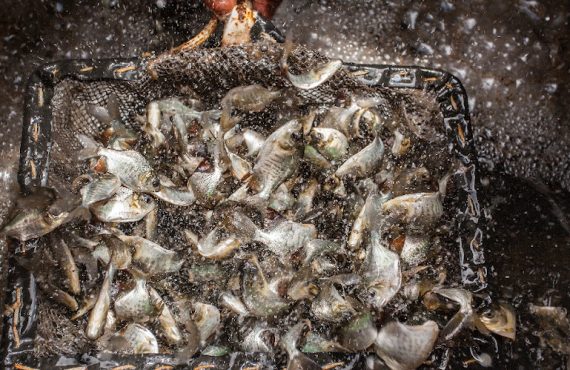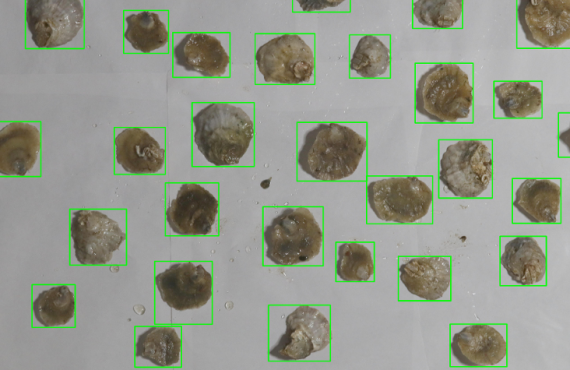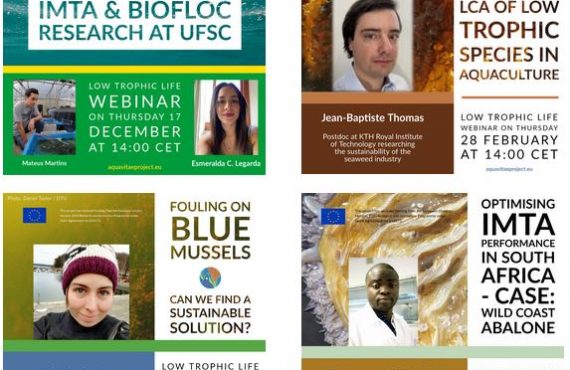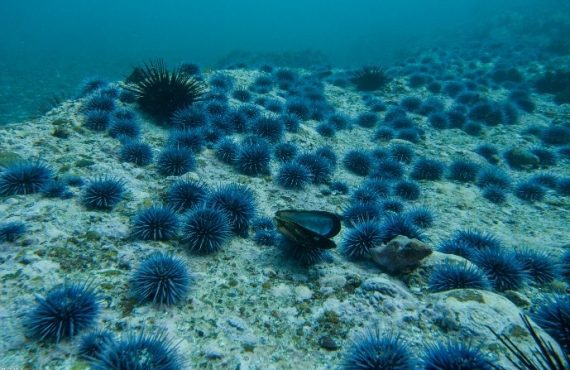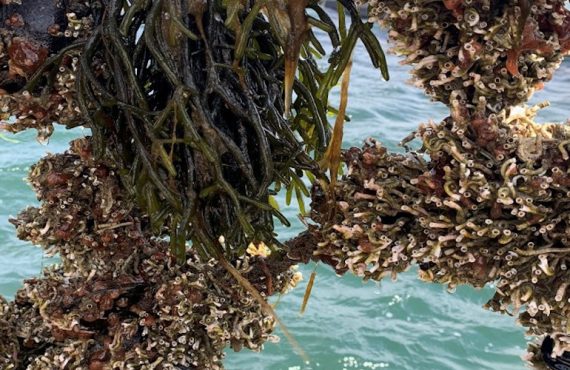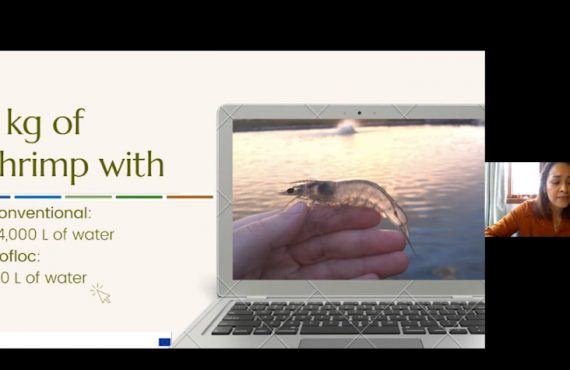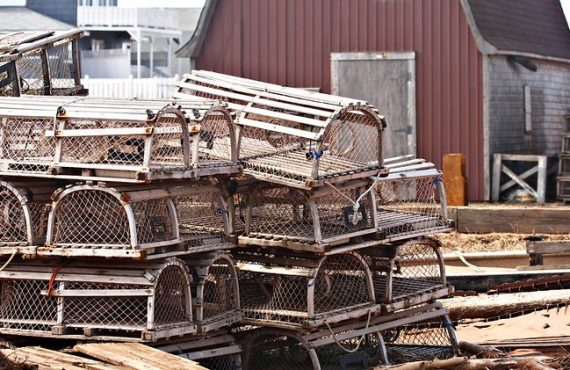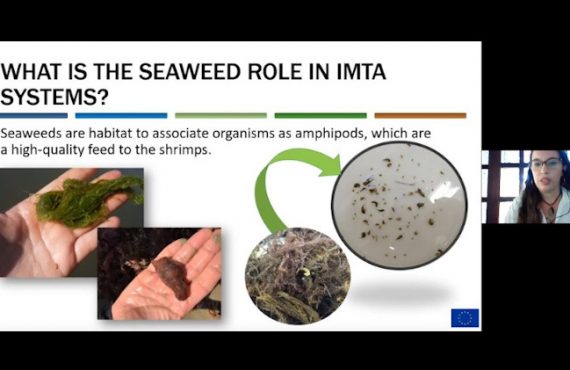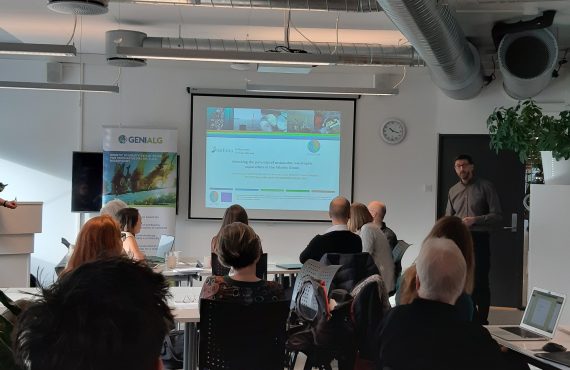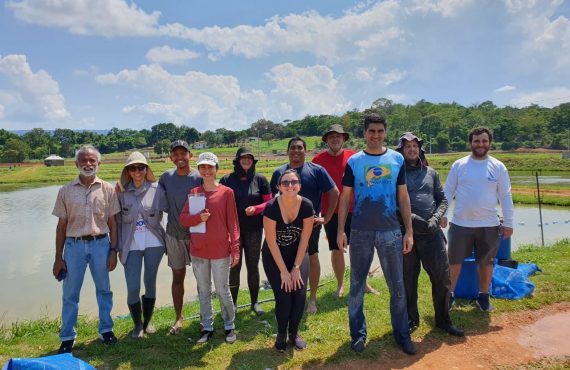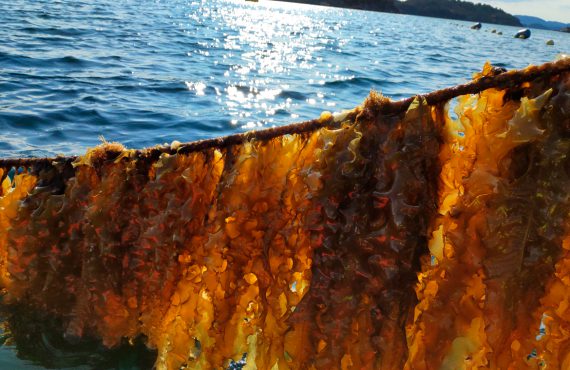DTU and Open Mode team over a floating connectable module – Photos: DTU and Open Mode
The EMFF project OpenMode (2019-2021) has developed floating connectable modules for intensive farming in exposed areas in the Atlantic, Mediterranean, Baltic and North Sea basins. Two of the eight testers have been located in Denmark, where AquaVitae (2019-2023) case study on offshore cultivation of blue mussels is testing its performance.
The prototypes
The #OpenModeTester2 and the #OpenModeTester6 prototypes combine the design of Spanish rafts and a new concrete material, with one of them offering an extra adaptive feature to the North Sea environment by being submergible during icing conditions. Besides, the new concrete material is significantly more durable more resistant than wood, traditionally used in theise constructions, and is being tested in the rough conditions of the Scandinavian area: one on the Sea Gardening facilities in Nykøbing Mors and another in the organic mussel farm Kerteminde Musslinger.
These prototypes offer novel systems for mussel production in exposed areas. Work in the project will allow to adjust the systems to local conditions and, therefore, offer new opportunities for the production of low-trophic species, a low-carbon source of proteins, species as mussels, oysters and seaweed.
Preliminary feedback from stakeholders highlights the durability of the material and its potential for the area.

The projects
OpenMode (2019-2021) is an EMFF project to prove the capacity of floating connectable modules for intensive farming in open waters. It aims to bridge the sector gaps farming on eight full-scale demonstrators in the Atlantic, Mediterranean, Baltic and North Sea Basins.
AquaVitae (2019-2023) is a Horizon 2020 project with 35 partners around the Atlantic basin working on new aquaculture species, processes and products. Thirteen case studies cover work on macroalgae, echinoderms, shellfish, finfish, cross-cutting issues and Integrated Multi-trophic Aquaculture (IMTA).




